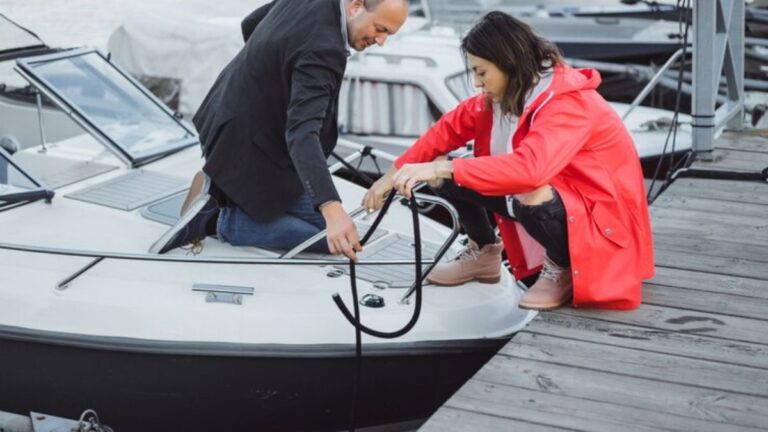Understanding the Importance of Boat Maintenance
Boat maintenance is crucial for both safety and performance. Regular upkeep prevents mechanical failures and extends the lifespan of your vessel. Neglecting boat maintenance can lead to costly repairs and potential hazards on the water. Regular maintenance routines help identify minor issues before they become significant problems. In addition to saving money, regular maintenance also enhances the resale value of your boat, making it a worthwhile investment. This article will cover critical aspects of boat maintenance to help you keep your vessel in top condition.
Regular Inspections
Regular inspections are the first step in maintaining a boat. Making sure to check your boat both before and after each trip guarantees that any problems can be fixed quickly. Keep an eye out for wear and tear, particularly on critical parts like the engine, hull, and safety gear. Check for any visible damage or corrosion and ensure all parts are functioning correctly. To prevent corrosion it is strongly recommended to buy a boat lift so you can keep your boat elevated above the waterline protecting it from a range of harmful elements including algae, barnacles, and saltwater. Boating Magazine recommends creating an inspection checklist to cover all essential areas. This checklist should include inspecting the condition of ropes and lines, checking the bilge for water, and ensuring navigational aids are operational. Regular inspections not only guarantee safety but also help in maintaining the boat’s performance over time.
Cleaning Your Boat
Keeping your boat clean is more than just aesthetic; it prevents long-term damage caused by salt, algae, and other contaminants. Regular cleaning helps maintain the boat’s exterior and interior. Use appropriate cleaning products and follow a routine that includes washing, scrubbing, and rinsing the hull, deck, and other surfaces. Cleaning not only makes your boat look good but also helps in spotting potential issues early. It’s essential to use marine-specific cleaning agents to avoid damaging the boat’s materials. Regularly cleaning upholstery and marine carpets will also prevent mold and mildew buildup, ensuring a healthy environment on board.
Engine Maintenance
The engine is the heart of your boat, and maintaining it is essential for optimal performance. Regularly change the oil and filters, check the fuel system for leaks or blockages, and inspect the cooling system for any issues. Overheating can lead to engine failure, so ensure that the cooling system is in good condition. Follow the manufacturer’s guidelines for engine maintenance and schedule professional inspections as needed. Regular maintenance also includes checking the ignition system, fuel pumps, and spark plugs to prevent breakdowns. Keeping the engine in top condition ensures efficient fuel use and a longer engine life, translating to smoother and safer trips.
Electrical Systems Check
For both safety and functionality, the electrical systems on your boat need to be in excellent working order. Check the connections, wiring, and battery on a regular basis for corrosion or other problems. Verify that every light and technological gadget is functioning correctly. Examine and test the navigation lights, the bilge pump, and any other electrical devices on board. Maintaining the electrical systems properly helps to avoid malfunctions that can leave you stranded on the water. Numerous common electrical problems can be avoided by maintaining tight and clean terminal connections. A more dependable boat is also achieved by routinely inspecting all switches and gauges to make sure everything is functioning as it should.
Hull and Propeller Care
The hull and propeller are vital components of your boat’s performance and efficiency. Regularly inspect the hull for any cracks, blisters, or other damage. Addressing hull issues promptly prevents water ingress and structural damage. Similarly, check the propeller for any dents or bends that can affect performance. Cleaning and maintaining these parts ensure smooth sailing and reduced fuel consumption. Applying a fresh coat of antifouling paint to the hull can prevent marine growth from adhering, which, in turn, improves speed and fuel efficiency. Ensuring the propeller is balanced correctly and aligned also contributes to a smoother, quieter ride.
Seasonal Maintenance
Seasonal maintenance prepares your boat for different weather conditions and prolongs its lifespan. Winterizing your boat involves draining fluids, securing the engine, and protecting the interior from moisture damage. In the spring, de-winterize by checking all systems, refilling fluids, and conducting a thorough inspection. Adapting your maintenance routine to the seasons ensures your boat remains in excellent condition year-round. Proper winterizing can prevent engine block cracks caused by frozen water, while regular spring checks can catch any damage that occurs during storage. Seasonal maintenance also includes checking for any wear-and-tear on sails, ropes, and other essential gear.
Keeping Records and Scheduling Maintenance
It is imperative to keep thorough records of all inspections, repairs, and maintenance procedures. This facilitates keeping track of the boat’s past and planning for upcoming repairs. Make a maintenance log with the dates, the jobs completed, and any remarks you have about the boat’s state. Scheduling routine maintenance work with a calendar or reminder system helps to make sure nothing gets missed. Thorough records can be vital when selling the yacht and aid in the diagnosis of reoccurring problems. Maintaining a record of warranties and service records can reduce repair costs and give comfort. An effective maintenance program is built on a foundation of consistent record-keeping.
